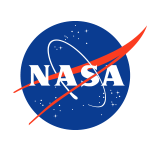Low-Power Long-Wavelength Infrared Sources for Tunable Laser Spectrometers on New Frontiers and Discovery Missions
Project Description

Following the success of the Tunable Laser Spectrometer (TLS) aboard the Mars Science Laboratory Curiosity rover, laser-based spectroscopy instruments are likely to play a vital role in future planetary science missions within the Discovery and New Frontiers programs. By selectively targeting absorption lines of key atmospheric gases and their less abundant isotopologues across the infrared spectrum, next-generation TLS instruments can provide valuable information on the composition and origins of bodies throughout the solar system. Lasers emitting in the long-wavelength infrared (LWIR) regime between 7 to 10 µm are required to access absorption lines of several compounds of importance for planetary science; however, such lasers are currently unavailable with the low power consumption required for in situ instrument payloads. We propose to develop single-mode lasers based on semiconductor quantum cascade (QC) structures with emission wavelengths in the 7 to 10 µm spectral range. The laser sources will be designed specifically for module power consumption below 1 W at realistic instrument heat-sink temperatures, while targeting molecular absorption lines of interest for high-priority planetary missions. We will leverage the recent experience of the proposal the team members from JPL in successfully developing low-power mid-infrared QC lasers for portable laser spectrometers and the expertise of the team members from Eos Photonics in designing their proprietary high-efficiency QC active region structures. The proposed LWIR lasers will enable the development of tunable laser spectrometers for New Frontiers and Discovery missions, specifically to study the abundance and isotopic composition of sulfur dioxide for the New Frontiers Venus In Situ Explorer and isotopologues of ammonia and phosphine for the New Frontiers Saturn Probe, both identified as high-priority missions in the 2013-2022 Planetary Science Decadal Survey.
More »Project Library
Primary U.S. Work Locations and Key Partners
| Organizations Performing Work | Role | Type | Location |
|---|---|---|---|
| Jet Propulsion Laboratory (JPL) | Supporting Organization | FFRDC/UARC | Pasadena, California |
Primary U.S. Work Locations
-
California


